Find Help
More Items From Ergsy search
-
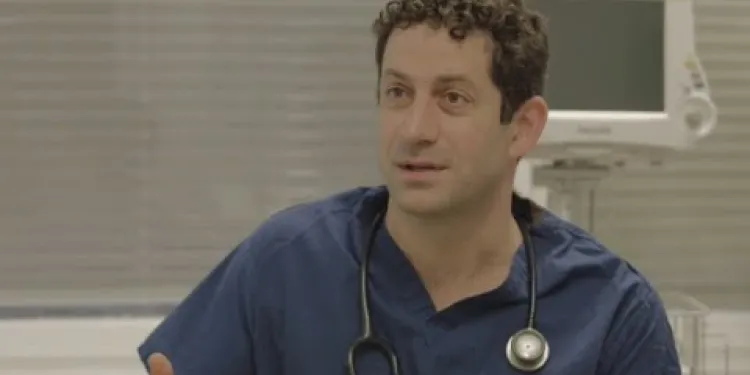
What to expect on the day of your operation
Relevance: 100%
-
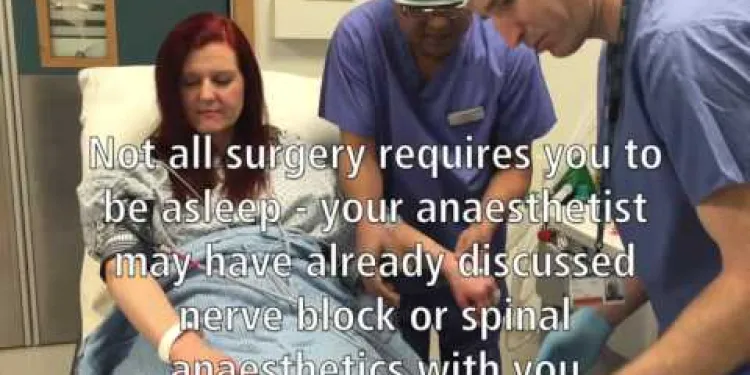
Your Operation at East Surrey Hospital
Relevance: 73%
-
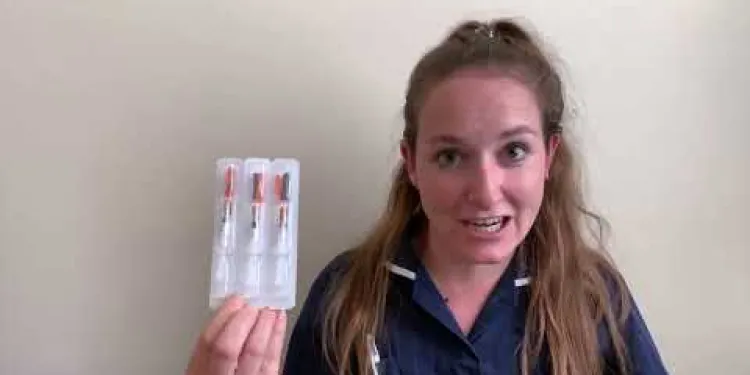
Bariatric Surgery - What to expect when you come to hospital for your operation.
Relevance: 73%
-
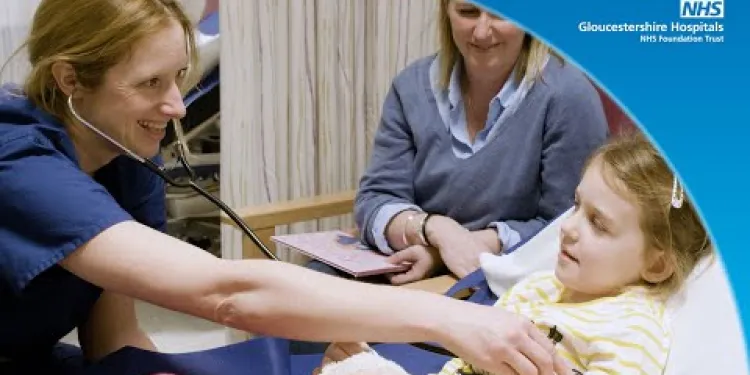
Having an operation at the Children’s Centre
Relevance: 70%
-

Does my doctor have access to operation waiting times?
Relevance: 69%
-

Are there specific resources for urgent operation waiting times?
Relevance: 69%
-
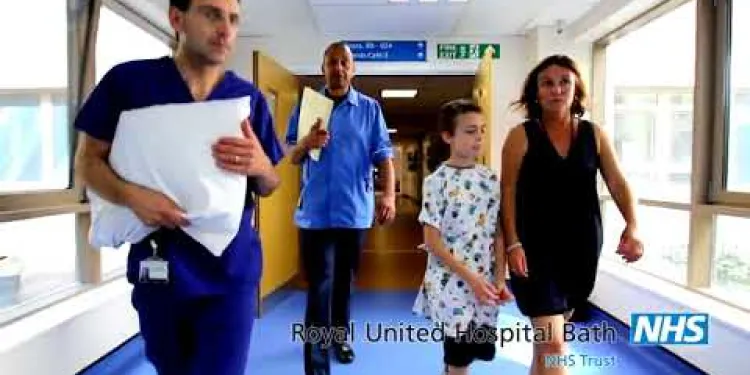
Having an anaesthetic for your operation - for over 8s
Relevance: 68%
-

How often are operation waiting times updated?
Relevance: 68%
-

Can I get information on average waiting times for operations?
Relevance: 65%
-

Having an operation or procedure at the Royal Free London
Relevance: 64%
-

Can I find operation waiting times in healthcare performance reports?
Relevance: 64%
-

Are there apps available to check operation waiting times?
Relevance: 64%
-
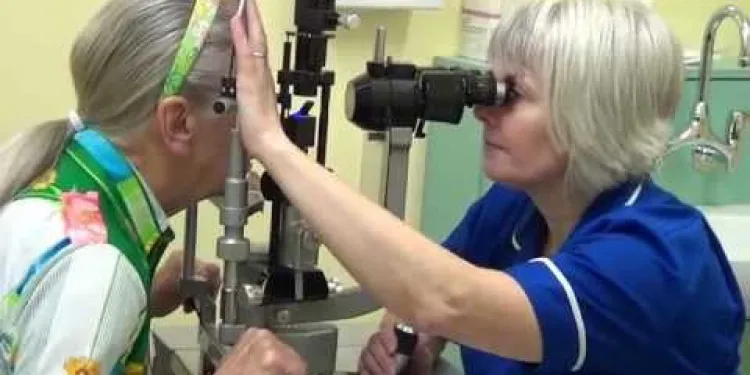
Your Cataract Operation
Relevance: 63%
-

How can I find information on waiting times for an operation in my area?
Relevance: 61%
-
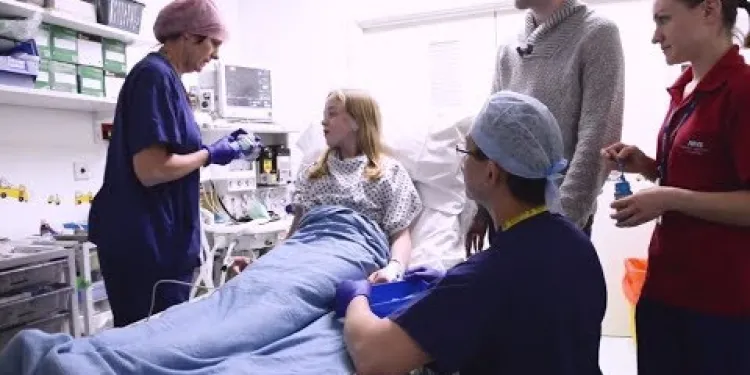
Having an operation in Oxford Children's Hospital with YiPpEe
Relevance: 59%
-
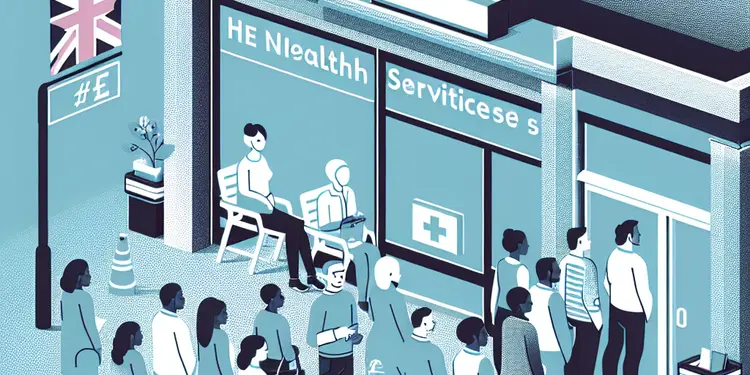
How can I find current waiting times for operations in my local hospital?
Relevance: 59%
-

Do private hospitals have shorter waiting times for operations?
Relevance: 57%
-

Having an operation
Relevance: 56%
-

Are waiting times for operations the same across all hospitals?
Relevance: 54%
-

What steps can a company take if shareholder disputes begin to impact business operations?
Relevance: 53%
-
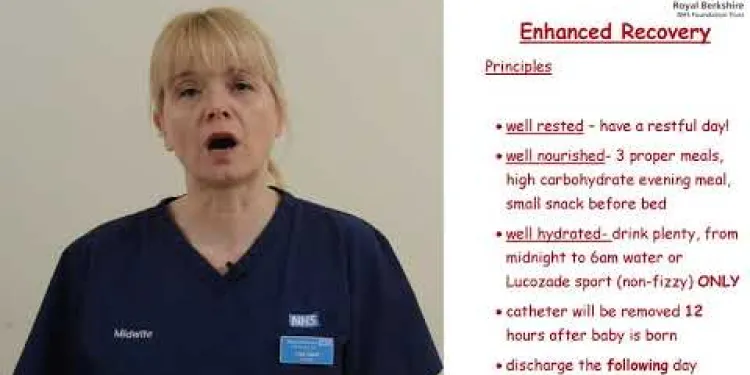
Pre operative Information for Planned Caesarean Birth
Relevance: 52%
-

What to expect of a DXA Scan
Relevance: 51%
-
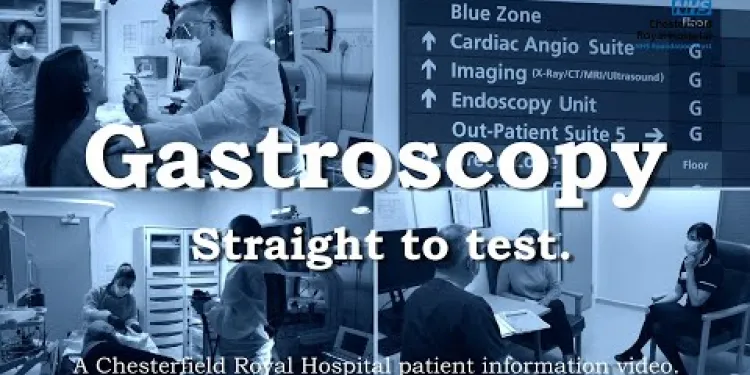
Gastroscopy - What to Expect on Referral to Chesterfield Royal Hospital
Relevance: 50%
-
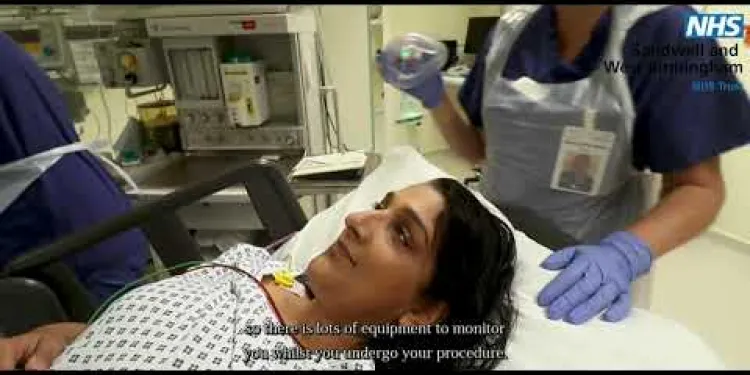
What to expect when visiting our hospitals for surgery | Theatres
Relevance: 50%
-

What to expect of a DXA Scan
Relevance: 49%
-

Can I appeal a long waiting time for my operation?
Relevance: 49%
-

What should I expect during a consultation for a facelift?
Relevance: 48%
-

What if I haven't received my payment by the expected date?
Relevance: 48%
-
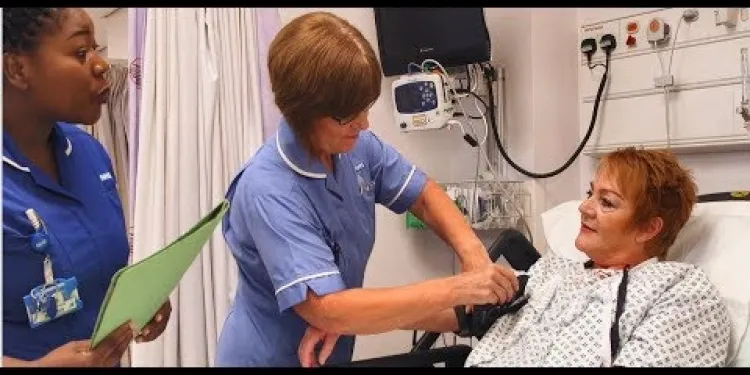
What to expect at your colonoscopy
Relevance: 48%
-
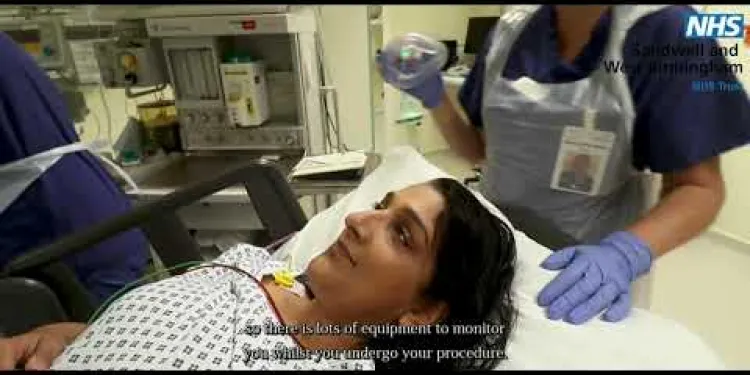
What to expect when visiting our hospitals for surgery | Theatres
Relevance: 47%
-

Are there further changes expected after 2026?
Relevance: 47%
-
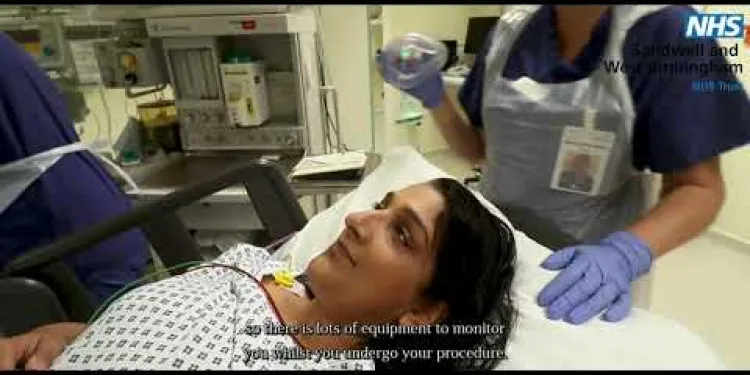
What to expect when visiting our hospitals for surgery | Theatres
Relevance: 47%
-

What is the life expectancy after a motor neurone disease diagnosis?
Relevance: 47%
-
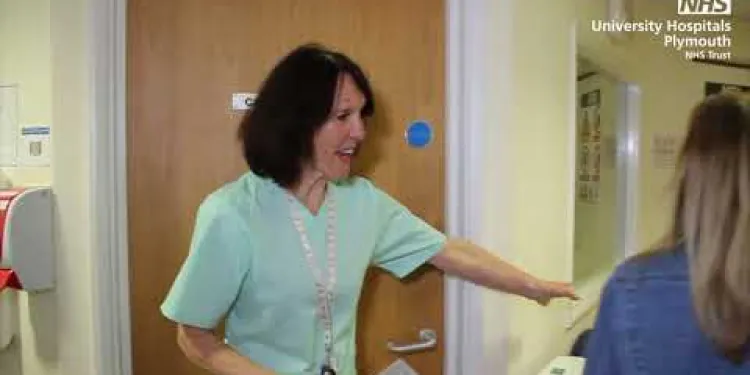
MRI Scanner walkthrough - what to expect at your appointment
Relevance: 46%
-

Thyroid eye disease. Squint surgery - The operation
Relevance: 46%
-

Why am I not receiving expected emails?
Relevance: 45%
-

When are the proposed cuts expected to take effect?
Relevance: 44%
-

What should I expect when visiting a prison?
Relevance: 43%
-

What to expect on the first day in a British prison.
Relevance: 43%
-

What is the expected timeframe to significantly reduce water loss in the UK?
Relevance: 42%
What to Expect on the Day of Your Operation
Arrival at the Hospital
On the day of your operation, you will be asked to arrive at the hospital at a specific time. This usually involves checking in at the reception, where you may need to provide personal information and your NHS number. Ensure you have your hospital letter and any necessary identification with you.
Pre-Operative Procedures
Once you are checked in, you will be directed to the pre-operative area. Here, a nurse will take your vital signs, including your blood pressure, heart rate, and temperature. They may also ask you questions about your medical history and any medications you are taking. You might be asked to change into a hospital gown and remove any jewellery, glasses, or dentures.
Meeting the Surgical Team
Before your operation, you will meet your surgeon and anaesthetist. The surgeon will go over the procedure with you, explaining the steps and risks involved. The anaesthetist will discuss the type of anaesthesia you will receive and answer any questions you may have. This is a good time to address any last-minute concerns.
Anaesthesia and Surgery
When it is time for your surgery, you will be taken to the operating theatre. If you are having general anaesthesia, the anaesthetist will administer it at this time. You will be monitored closely throughout the procedure. If you are having local or regional anaesthesia, only the relevant part of your body will be numbed. The surgery duration can vary, and you may be in the operating theatre for longer than just the procedure time due to preparation and recovery needs.
Recovery Room
After your operation, you will be moved to the recovery room where nurses will monitor your vital signs as you wake up from the anaesthesia. You might feel groggy, nauseous, or experience some pain. The nurses can administer pain relief if needed. It is essential to follow their instructions to ensure your recovery is as smooth as possible.
Post-Operative Care
Once you are stable, you will be transferred to a ward or given discharge instructions if you had a day surgery. Your post-operative care plan will include guidelines on activities, diet, medication, and wound care. It is crucial to follow these instructions to promote healing and avoid complications. You will also be informed about any follow-up appointments.
Going Home
If you are discharged on the same day, ensure you have someone to accompany you home, as you may not be able to drive or use public transport on your own. Make arrangements for someone to stay with you for at least the first 24 hours post-surgery. Rest is vital, and you should take adequate time off work and other activities as recommended by your healthcare provider.
Remember, each surgery is unique, and your experience may vary. Do not hesitate to ask questions and voice any concerns to your healthcare team at any point during the process.
What to Expect on the Day of Your Operation
Arrival at the Hospital
On the day of your operation, you need to get to the hospital at a certain time. You will check in at the front desk. You might need to tell them your name, address, and NHS number. Bring your hospital letter and ID with you.
Pre-Operative Procedures
After you check in, you will go to the pre-op area. A nurse will check your blood pressure, heart rate, and temperature. They will ask about your health and any medicines you take. You may need to change into a hospital gown and take off jewellery, glasses, or dentures.
Meeting the Surgical Team
Before your operation, you will meet your surgeon and anaesthetist. The surgeon will explain what will happen during the surgery and any risks. The anaesthetist will talk about the anaesthesia and answer your questions. Ask any last questions you have here.
Anaesthesia and Surgery
When it's time for surgery, you will go to the operating room. If you have general anaesthesia, it will make you sleep during surgery. If you have local anaesthesia, only the area being operated on will be numb. The surgery time may vary. You may stay in the operating room longer than the surgery itself for preparation and recovery.
Recovery Room
After surgery, you go to the recovery room. Nurses will watch your vital signs as you wake up. You might feel sleepy or sick, and there could be some pain. Nurses can give you medicine to help. Follow their advice to recover well.
Post-Operative Care
If you are okay, you will move to a ward or get instructions if you go home the same day. You need to follow a care plan. This will include what you can eat, any medicines, and looking after your wound. Following the instructions helps you heal and avoid problems. You will also get information about follow-up appointments.
Going Home
If you leave the same day, have someone take you home. Do not drive or use public transport by yourself. Arrange for someone to stay with you for at least 24 hours after the surgery. Rest is very important. Take time off work and activities as your doctor advises.
Remember, every surgery is different. Your experience might be unique. Always ask questions and tell your healthcare team any worries you have during the process.
Frequently Asked Questions
What time should I arrive at the hospital?
Please arrive at the hospital at the time specified in your pre-operative letter or communication. It is usually 2-3 hours before your scheduled surgery time.
Can I eat or drink before my operation?
You should not eat or drink anything after midnight the night before your surgery unless advised differently by your healthcare team. However, you may be allowed to have small sips of water.
What should I bring with me to the hospital?
You should bring photo ID, any relevant medical paperwork, a list of medications you are currently taking, comfortable clothing, and any personal care items you might need.
Will I meet my surgeon on the day of the surgery?
Yes, you will usually meet your surgeon and anaesthetist on the day of the operation to discuss any final details and answer any last-minute questions you may have.
Can family or friends accompany me to the hospital?
Yes, family or friends can accompany you to the hospital; however, they might not be allowed in certain pre-operative or recovery areas.
What should I wear to the hospital on the day of my operation?
Wear loose, comfortable clothing that is easy to change out of. You will change into a surgical gown before your operation.
Will I be put to sleep for my operation?
This depends on the type of surgery you are having. General anaesthesia, local anaesthesia, or regional anaesthesia (like a spinal or epidural) might be used. Your anaesthetist will discuss this with you.
What should I do if I am feeling unwell on the day of my surgery?
Contact the hospital as soon as possible if you are feeling unwell. They will advise you on whether it is safe to proceed with the surgery.
How long will the operation take?
The duration of the operation will depend on the type of surgery you are having. Your surgeon will provide an estimated time beforehand.
Where do I go upon arriving at the hospital?
Follow the instructions provided in your pre-operative information. You will likely need to check in at a reception area or a specific ward.
Can I take my regular medications on the day of surgery?
You will receive specific instructions on which medications to take or avoid on the day of surgery. This information will be discussed during your pre-operative assessment.
What happens if there is a delay on the day of surgery?
Delays can happen due to various reasons. The hospital staff will keep you informed and updated if there are any changes to the schedule.
How will I manage pain after the surgery?
You will be provided with pain relief options after the surgery. The medical team will ensure you are comfortable during the recovery process.
What should I do with my personal belongings during surgery?
It is best to leave valuable items at home. Any essential items can be stored in a locker or given to a family member or friend for safekeeping.
When can I go home after my surgery?
The discharge time will depend on the type of surgery and your recovery. Some patients can go home the same day, while others may need to stay overnight or longer.
When should I get to the hospital?
It is important to know when to arrive so you are on time.
- Check your appointment letter for the time to arrive.
- Ask someone to remind you of the time.
- Set an alarm to help you remember.
- If you can, ask a friend or family member to go with you.
Please get to the hospital when your letter says. This is usually 2-3 hours before your surgery.
Can I eat or drink before my operation?
Before your operation, you need to stop eating and drinking for a while. This is important to keep you safe. Ask your doctor or nurse when you should stop eating and drinking.
Tip: Use a reminder on your phone or ask someone to remind you when to stop eating and drinking. This will help you remember.
Do not eat or drink after midnight the night before your surgery. Your doctor will tell you if you can do something different. You might be able to have small sips of water.
What do I need to take to the hospital?
Here is a simple list of things to pack:
- Comfortable clothes or pajamas
- A toothbrush and toothpaste
- A hairbrush
- A book or toy you like
- Important papers, like your ID
You can ask someone to help you pack. Bring things that make you feel good and happy. Remember, the hospital is a safe place, and the doctors and nurses are there to help you.
You should bring a photo ID. Also, bring any important medical papers, a list of the medicine you are taking now, comfy clothes, and any personal items you need.
Will I see my doctor on the day of my operation?
Yes, you will usually meet the doctor who will do your operation and the person who makes sure you don't feel pain during the operation. This happens on the same day as the operation. You can talk to them about any last questions you have.
Can my family or friends come with me to the hospital?
Yes, your family and friends can come with you to the hospital.
They can help you feel better and stay with you if you are scared.
If you need help understanding things, they can explain it to you too.
It is a good idea to ask the hospital how many people you can bring with you.
Yes, family or friends can come with you to the hospital. But, there are some places, like where you get ready for surgery or wake up after, where they might not be allowed to go.
If you’re nervous, you can try some things to help you feel better, like deep breathing. You can also bring a book or a soft toy to feel more comfortable.
What Should I Wear to the Hospital for My Operation?
When you go to the hospital for an operation, wear loose and comfy clothes.
Here are some tips:
- Wear a button-up shirt or a top that is easy to take off.
- Choose pants that are easy to pull down, like sweatpants.
- Wear slip-on shoes that do not have laces.
- Do not wear jewelry or bring it with you.
- If you have long hair, tie it back with a soft hairband.
Ask a nurse or doctor if you have questions. They can help you pick the right clothes.
Wear clothes that are loose and comfy. They should be easy to take off. You will put on a special hospital gown before your operation.
Will I be asleep during my surgery?
Yes, you will be asleep during your operation. This is called anesthesia. It is like having a very deep sleep, so you won’t feel anything during the surgery.
If you feel worried, tell the doctor or nurse. They can help you feel better.
Remember:
- You will be safe and looked after by the doctors and nurses.
- Someone will be with you the whole time.
This depends on the kind of surgery you are having. You might need to be asleep for the surgery. This is called general anaesthesia. Sometimes, doctors will just numb one part of your body. This is called local anaesthesia. They might also numb a larger area of your body, like the lower half. This is called regional anaesthesia, like a spinal or epidural.
Your anaesthetist is the doctor who knows all about anaesthesia. They will talk to you about what is best for you.
If you feel unsure or worried, it is good to talk about it. You can also use pictures or videos to help you understand more about the surgery. Having someone with you, like a family member or friend, can also make you feel better.
What if I feel sick on my surgery day?
If you feel sick before your surgery, tell your doctor. It is important to let them know. They will help you decide what to do. Your doctor might change your surgery to another day. Remember, it is okay to ask for help if you feel confused or worried.
You can use a calendar to remember your surgery date. You can also ask a friend or family member to be with you. This can make everything easier and less scary.
If you feel sick, tell the hospital quickly. They will let you know if it is okay to go ahead with the surgery.
How long will the surgery take?
The surgery will not take long. It might be as quick as 1 hour, or it could be 3 hours. The doctor will tell you more about it.
It can be helpful to use pictures or a timer to understand time better.
The time it takes for the operation depends on what kind of surgery you need. Your doctor will tell you how long it might take before the operation happens.
Where do I go when I get to the hospital?
When you reach the hospital, go to the main entrance. Look for signs or ask someone at the help desk if you need directions.
You can use pictures on the signs to guide you or ask a staff member for help. You can also bring a friend to assist you.
Look at the instructions you got before your operation. They will tell you what to do. You will probably have to go to a desk or a special room to check in.
If you need help, ask someone to go with you or write down the steps so you remember them better.
Can I take my usual medicine on the day of the surgery?
Yes, you might need to take your regular medicine. But you should ask your doctor first. They will tell you what to do.
Always follow the doctor's advice. If you need help remembering what the doctor says, you can:
- Write it down.
- Use a calendar or reminder app on your phone.
- Ask someone you trust to help you remember.
Your doctor will tell you which medicines to take or not take on the day you have your operation. They will talk to you about this before the operation day.
What happens if surgery is late?
If your surgery is late, don't worry. Here is what you can do:
- Bring a book or tablet to keep busy.
- Ask the nurse for updates.
- Tell a family member or friend to stay with you.
Remember, the hospital team will take care of you!
Sometimes, things don’t happen on time. There can be many reasons for this. The people at the hospital will let you know if things change.
How can I feel better after the surgery?
After your surgery, you might feel some pain. Here are some ways you can manage it:
- Listen to your doctor or nurse. They will tell you what to do.
- Take your medicine. It's important to take it just like the doctor says.
- Tell someone if you are in pain. Don't keep it to yourself.
- Rest as much as you can. Your body needs time to heal.
- Use a warm or cold pack. Ask a grown-up to help you with this.
You can also:
- Use a comfy pillow. It can help you feel better.
- Try deep breathing or listening to music to help you relax.
Remember, it's okay to ask for help. Tell a grown-up if you need anything.
After your surgery, you will get medicine to help with the pain. The doctors and nurses will make sure you feel okay while you get better.
Here are some tips to make reading easier:
- Read slowly and take your time.
- Use a finger or ruler to follow the words.
- Listen to someone read it out loud if you need help.
What should I do with my things during surgery?
If you are having surgery, you might bring things like a phone, wallet, or keys with you. Here is what you can do with them:
- Ask a friend or family member to keep them safe for you.
- Check if the hospital can look after them.
- Leave important things at home if you don't need them.
Helpful tip: Write a list of what you have so you don’t forget anything!
It is a good idea to keep your important things at home. If you need to bring something special, you can put it in a safe box or ask a family member or friend to look after it for you.
When can I go home after my surgery?
When can I leave the hospital after my surgery?
You can usually go home after surgery when the doctor says it is safe.
Here is how they decide:
- You feel okay and can move around.
- You do not have a fever or too much pain.
- You can eat and drink without feeling sick.
- The doctor checks and says you are ready to go home.
Some surgeries let you go home the same day. Others need you to stay in the hospital for a few days.
It is good to have someone to help you when you get home.
Tools like reminder notes or phone alerts can help you remember to take any medicines.
How long you stay in the hospital depends on your surgery and how you are feeling. Some people can go home on the same day. Others might need to stay for a night or more.
Useful Links
This website offers general information and is not a substitute for professional advice.
Always seek guidance from qualified professionals.
If you have any medical concerns or need urgent help, contact a healthcare professional or emergency services immediately.
Some of this content was generated with AI assistance. We’ve done our best to keep it accurate, helpful, and human-friendly.
- Ergsy carfully checks the information in the videos we provide here.
- Videos shown by Youtube after a video has completed, have NOT been reviewed by ERGSY.
- To view, click the arrow in centre of video.
- Most of the videos you find here will have subtitles and/or closed captions available.
- You may need to turn these on, and choose your preferred language.
- Go to the video you'd like to watch.
- If closed captions (CC) are available, settings will be visible on the bottom right of the video player.
- To turn on Captions, click settings .
- To turn off Captions, click settings again.
More Items From Ergsy search
-

What to expect on the day of your operation
Relevance: 100%
-

Your Operation at East Surrey Hospital
Relevance: 73%
-

Bariatric Surgery - What to expect when you come to hospital for your operation.
Relevance: 73%
-

Having an operation at the Children’s Centre
Relevance: 70%
-

Does my doctor have access to operation waiting times?
Relevance: 69%
-

Are there specific resources for urgent operation waiting times?
Relevance: 69%
-

Having an anaesthetic for your operation - for over 8s
Relevance: 68%
-

How often are operation waiting times updated?
Relevance: 68%
-

Can I get information on average waiting times for operations?
Relevance: 65%
-

Having an operation or procedure at the Royal Free London
Relevance: 64%
-

Can I find operation waiting times in healthcare performance reports?
Relevance: 64%
-

Are there apps available to check operation waiting times?
Relevance: 64%
-

Your Cataract Operation
Relevance: 63%
-

How can I find information on waiting times for an operation in my area?
Relevance: 61%
-

Having an operation in Oxford Children's Hospital with YiPpEe
Relevance: 59%
-

How can I find current waiting times for operations in my local hospital?
Relevance: 59%
-

Do private hospitals have shorter waiting times for operations?
Relevance: 57%
-

Having an operation
Relevance: 56%
-

Are waiting times for operations the same across all hospitals?
Relevance: 54%
-

What steps can a company take if shareholder disputes begin to impact business operations?
Relevance: 53%
-

Pre operative Information for Planned Caesarean Birth
Relevance: 52%
-

What to expect of a DXA Scan
Relevance: 51%
-

Gastroscopy - What to Expect on Referral to Chesterfield Royal Hospital
Relevance: 50%
-

What to expect when visiting our hospitals for surgery | Theatres
Relevance: 50%
-

What to expect of a DXA Scan
Relevance: 49%
-

Can I appeal a long waiting time for my operation?
Relevance: 49%
-

What should I expect during a consultation for a facelift?
Relevance: 48%
-

What if I haven't received my payment by the expected date?
Relevance: 48%
-

What to expect at your colonoscopy
Relevance: 48%
-

What to expect when visiting our hospitals for surgery | Theatres
Relevance: 47%
-

Are there further changes expected after 2026?
Relevance: 47%
-

What to expect when visiting our hospitals for surgery | Theatres
Relevance: 47%
-

What is the life expectancy after a motor neurone disease diagnosis?
Relevance: 47%
-

MRI Scanner walkthrough - what to expect at your appointment
Relevance: 46%
-

Thyroid eye disease. Squint surgery - The operation
Relevance: 46%
-

Why am I not receiving expected emails?
Relevance: 45%
-

When are the proposed cuts expected to take effect?
Relevance: 44%
-

What should I expect when visiting a prison?
Relevance: 43%
-

What to expect on the first day in a British prison.
Relevance: 43%
-

What is the expected timeframe to significantly reduce water loss in the UK?
Relevance: 42%


